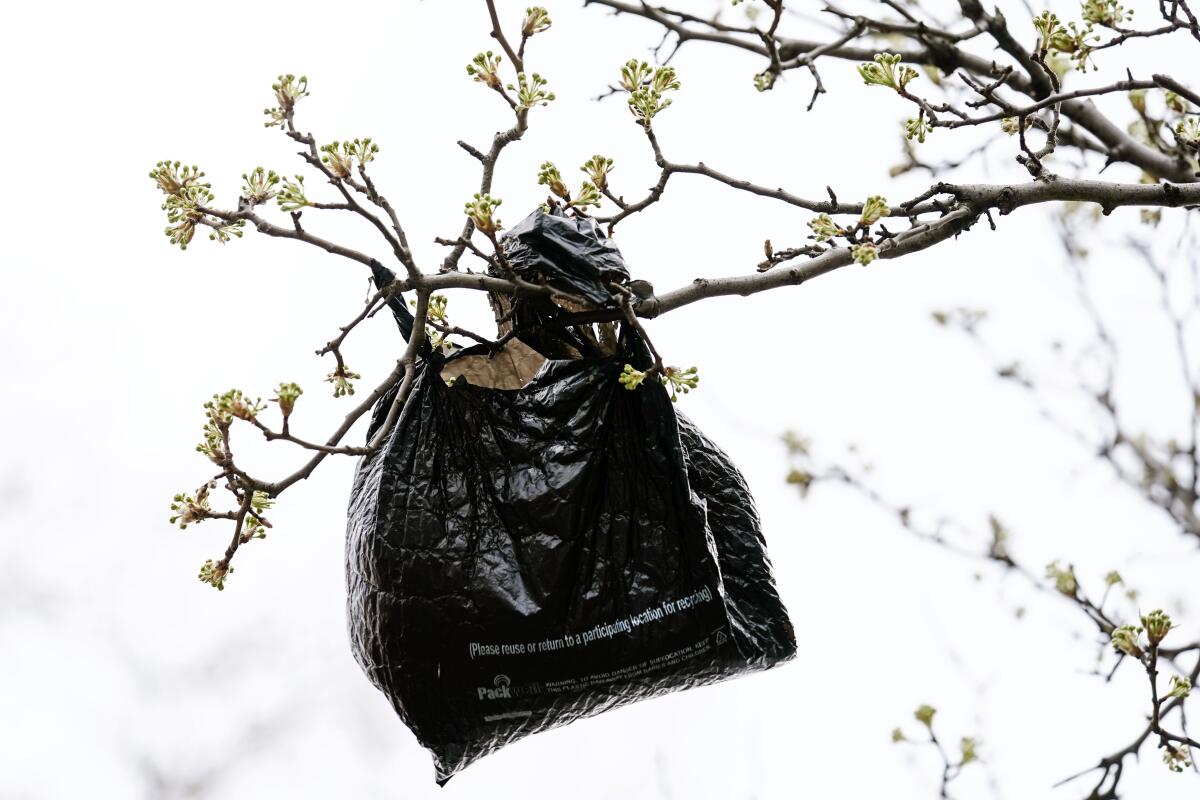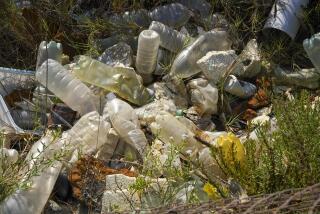Op-Ed: Why Biden should lead the charge on the global plastics treaty at the G7 Summit

It has been described as the next great frontier in environmental reform. With the Group of 7 meeting set to begin Friday, momentum is building for a global treaty to combat the plastic pollution that is destroying ecosystems and posing a mounting threat to human and environmental health. More than two-thirds of United Nations member states have declared support for a global plastics treaty. Yet one critical nation has remained silent: the United States.
To understand why, look to the entrenched power of Big Oil and Gas in Washington.
As the world turns away from fossil fuels, oil and gas giants, and their petrochemical partners, are staking their future on plastic production, with plans to invest at least $400 billion in plastics by 2024. The petrochemicals used to make plastic are rapidly becoming the world’s biggest driver of oil demand — ahead of trucks, aviation and shipping. With more than 600 lobbyists in Washington, oil and gas companies are deploying historic amounts of cash to block meaningful international action, all while positioning themselves as leaders in sustainability.
It appears to be working. Plastics are conspicuously missing from President Biden’s climate agenda. Much is riding on whether the Biden administration can overcome industry pressure. From the deepest trenches of the ocean to the most remote locations on land, few habitats remain unspoiled by plastic. The U.N. agency UNESCO estimates that plastic pollution kills at least 100,000 marine mammals and a million seabirds every year. The harm to fish, which is only just beginning to be measured, is likely far greater.
On the economic front, plastic pollution is causing losses between $6 billion and $19 billion a year in 87 coastal countries. Most insidious of all are the microplastics shed by polluted materials. These particles are now found in every part of the food chain, including in salt and honey.
As Big Oil and Gas scale up their plastic production, the problem is set to get much worse. Right now, a dump truck’s worth of plastic enters the ocean every minute, but this is expected to triple by 2040. The United States will be responsible for an outsized share of it. By some measures, we are already the worst plastic polluter in the world.
If the Biden administration is to follow through on its pledge to reestablish the U.S. as an environmental champion, it must lead the charge for a treaty to curtail not just plastic waste, but also spiraling virgin plastic production.
The effort already enjoys broad support, and not just from U.N. member states. Break Free From Plastic is an advocacy group made up of thousands of organizations across the globe including the Environmental Investigation Agency, where I work. The group regards a global treaty as “the only viable and effective means to tackle plastic pollution.”
Meanwhile, major brands such as Coca-Cola, Pepisco, Nestlé and Unilever, whose reputations take a hit every time a cast-off bottle or plastic wrapper is found with their logo on it, see a global treaty as driving “the transition to a circular economy for plastic — at speed and scale.” But breaking the fossil fuel industry’s stranglehold on U.S. policymaking will be no easy task.
As an NPR investigation found last year, the industry has spent years successfully promoting the myth that recycling is the answer to plastic pollution. The popularization of recycling, it turns out, was largely an industry-funded interference campaign. All the while, not one of the 100 biggest plastic producers source more than 2% of their feedstock from recycled material. Their overproduction of new plastic also undermines recycling markets.
The silver lining? The fossil fuel industry’s lobbying push is a sign of how entirely plausible bipartisan support for a plastics treaty has become. Even in a historically divided Congress, action on plastics enjoys wide-ranging support, with conservative stalwarts such as Sen. Lindsey Graham (R-S.C.) helping to spearhead a bill to protect oceans from plastic pollution.
While the exact agenda at this weekend’s G-7 conference is unknown, a treaty on plastics will likely be on the docket. This will put Biden on the spot. He should join other G-7 leaders in formally supporting the start of treaty negotiations at the U.N. Environment Assembly in February. The G-7 should be clear that the agreement must address the full life cycle of plastics, starting with restrictions on virgin plastic production, similar to the approach taken in the Montreal Protocol on Substances That Deplete the Ozone Layer, a 1987 international agreement that set deadlines for stopping production of chlorofluorocarbons, or CFCs, and similar chemicals.
It remains to be seen whether Biden will show the leadership necessary to overcome the lobbying blitz from oil and gas companies and back meaningful action on reducing plastic production and waste. But for a president who is striving to return the United States to its rightful position as a climate leader, supporting this treaty is an opportunity for the ages.
Tim Grabiel is the senior lawyer for the Environmental Investigation Agency.
More to Read
A cure for the common opinion
Get thought-provoking perspectives with our weekly newsletter.
You may occasionally receive promotional content from the Los Angeles Times.










